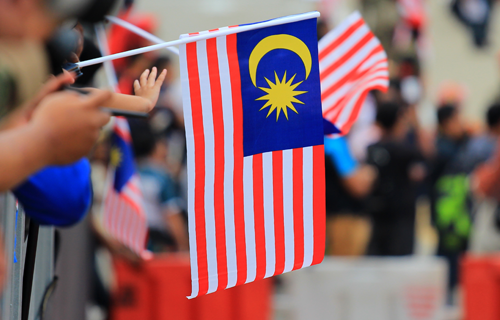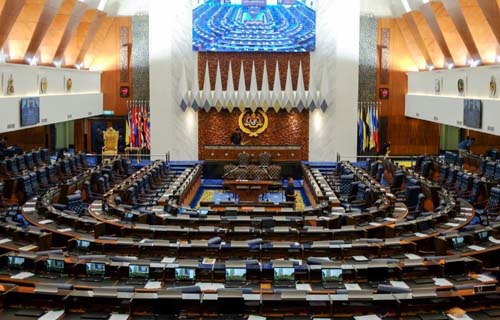Unity in Diversity Through Equality: The Malaysian Dream

Written by Joel Jeshurun, a member of Akar Umbi Kita, a programme for emerging advocates against racial discrimination by Architects of Diversity, Imagined Malaysia, IDEAS and the European Union. This article is published in conjunction with the International Day for the Elimination of Racial Discrimination
“I have a dream that my four little children will one day live in a nation where they will not be judged by the colour of their skin, but by the content of their character.” This quote is from the infamous speech, “I have a dream”, by Martin Luther King Jr. that inspired many to promote civil rights equality in the United States. A timeless quote that applies even until today, here and now.
The truth is, being from a different race or minority group in Malaysia, you are required to work harder and outshine the others to even stand a chance in accomplishing your dreams. You strive to be the best because you know that is the only way you can climb the social ladder.
One way or another, we all have our own stories of being discriminated against and encounters with racism. Mine is no different.
I had waited my whole secondary school life for a chance to participate in a debating competition but this chance was taken away due to a racial quota that was put in place. I truly felt the weight of despair and hopelessness at that moment. Racial discrimination is not something that could be put into mere words but felt.
Although what I was going through at the time had something to do with my passion and in taking part in something I loved, it was disappointing to know that I had lost my last chance to be in a debate competition during my secondary school life only because of my race.
I believe Malaysia will eventually lose its potential talents due to racial discrimination as we are capable than so much more than just mediocrity. It is nothing new to the ears when many say they would rather choose to migrate and leave the country for better opportunities due to the way of politics and policies that are formulated because they are discriminatory to Malaysians. As time passes by, many have come to realise that Malaysia is going backwards, while the few elites at the top are governing us according to their whims and fancies.
I cannot say I feel a sense of belonging in my nation or a genuine sense of being Malaysian when racism is still prevalent. The reality that racial discrimination has somewhat become a norm is not to be neglected. The first step we can take to tackle this is to acknowledge that not all of us are treated the same nor are we all privileged.
It seems as if the concept of equality may not be grasped by many because of the complacency within our society due to one race getting more benefits over the other. We are so connected to our own racial identities to a point where we may forget that we are all Malaysians first and the rest need not matter at times.
In schools alone, a survey done by Sekolah Semua and Architects of Diversity, a youth movement, had revealed that ethnic Indians had suffered the most discrimination and 92 percent of the respondents say that no action or investigation was taken after the incident was reported to authorities while the majority of them did not even report the incident as it was perceived to not make any difference.
Similarly, as I recall not much was considered when I first told my experience of being side-lined from the debate team to the head of student affairs. Speaking from a former student’s perspective, it is needless to say that racism goes beyond just racial quotas. Inequalities lead to discrimination, and the ones affected the most are the victim themselves.
Inequality refers to the phenomenon of unequal or unjust distribution of resources and opportunities among members of a given society. Equality in opportunities will move Malaysia forward to greater heights and many of us know it, but how can this be achieved when the system is built to be racially discriminatory and the policies do not cater to the needs nor is it based on meritocracy?
Discrimination occurring even in subtle ways, through conversations and interactions in our daily lives can perpetuate a lot of harm and disunity within the fabric of our society, whereas institutionalised racial discrimination does even more damage to the country than what we might think.
With Malaysia having a place in the United Nations Human Rights Council (UNHRC), they must do better in addressing inequalities through values of inclusivity, acceptance, and understanding of one another, bringing about change that is concrete and long lasting just from treating everyone as Malaysians first.
Protecting and preserving our diverse culture is essential but so is taking measures to bring about social equality. Equality is a human right, and it should be seen that way by all Malaysians. Understanding one’s culture and customs helps promote unity in diversity. This effort can be made concrete through the value of equality.
Our economy thrives on how well we are able to co-exist with one another in peace and how we distribute wealth amongst each other. Lack of action against all forms of discrimination could indirectly impact our economic growth.
We have seen the same plan being used in the name of reducing economic disparities through affirmative action for decades, yet we see no light at the end of the tunnel but rather abuse and discrimination when the rich and elite cronies have seem to benefit from the Bumiputera equity ownership, as was mentioned by Datuk Seri Anwar Ibrahim during the debate of the 12th Malaysia Plan. Professor Dr. Edmund Terrence, political economist from University Malaya in 2018 said that the circulation of Bumiputera equity figures stopped after 2008. This lack of transparency in data is detrimental when we do not know how effective the old policies such as the New Economic Policy or equity ownership have been in alleviating the Bumiputera out of poverty and into a level playing field. By the looks of it, it seems to have failed to uplift most of the poor Bumiputera out of their plight and improve their standard of living.
The sole purpose of the affirmative action policy known as the New Economic Policy was to alleviate every citizen regardless of race out of poverty and eliminate identification of race with economic function. Special measures were taken to uphold and help the Bumiputera, and that is not discriminatory as it is seen as a means of bringing a level playing field in society.
However, the goal of reaching this level playing field has not been entirely successful even after decades, and it has come at the expense of discriminating other communities such as the Orang Asli, Chinese and Indians because of the elite few who choose to fill their pockets and fulfil their personal agenda.
It is pivotal that racial discrimination in Malaysia is taken to international standards as a human rights issue and not something that can be swept under the rug.
Racial discrimination is something that we as Malaysians may be all too familiar with or feel sensitive about. It is an issue that haunts us one way or another through our encounters in our daily lives, be it through dealing with stereotypes, verbal abuse, hate speech, racial slurs, xenophobia, being frowned upon within society or the feeling of being an outsider in your very own country. Not forgetting, as well, the racially charged rhetoric used among politicians as a means to divide and conquer.
This situation can change for the better, starting from taking the initiative to revive the efforts of tabling a specific legislation regulating racial discrimination, in accordance with international frameworks.
One of those international frameworks is the International Convention on the Elimination of All Forms of Racial Discrimination (ICERD) which was pledged to be ratified during the reign of the Pakatan Harapan government. Yet, it received backlash and annoyance from the public. Some political parties called it the “Western Propaganda”. There were even public rallies and misconceptions of it being against Islam or misaligned with the Federal Constitution.
This international law, in actual fact, allows preferential treatment as long as there is justification for it to exist, as seen in its provisions stated in Article 1(4) which permits special measures which are proportionate to addressing substantive discrimination and target certain groups disadvantaged in society. As such, it definitely aligns with the spirit of our Federal Constitution.
The spirit and intent of Article 153 of the Federal Constitution calls to safeguard the special position of the Malays and natives of Sabah and Sarawak. It also includes the legitimate interest of other communities as well. It was wholeheartedly meant to level the playing field among Malaysian society and not be discriminative or accord Malay supremacy.
The intent of Article 153 is clear, that no one should be left behind. When the objectives of preferential treatment such as scholarships, employment in the public service, educational quotas and special facilities to the Malays have served its purpose, a continuation of it would be deemed unreasonable. There would be no need for quotas in debating competitions, in accessing higher education or employment. In the end, it is all about political will and the urgency for institutional reforms.
It is time that Malaysia goes through a real change of political landscape and for that we need to have a disruptive force, a force to be reckoned with and we are all capable of being that force if we decide to dream. What the forefathers had envisioned was a Malaysia which we call home and where we all hold proud our Malaysian identity. To achieve that, all races must be able to live cohesively and in social equality.


